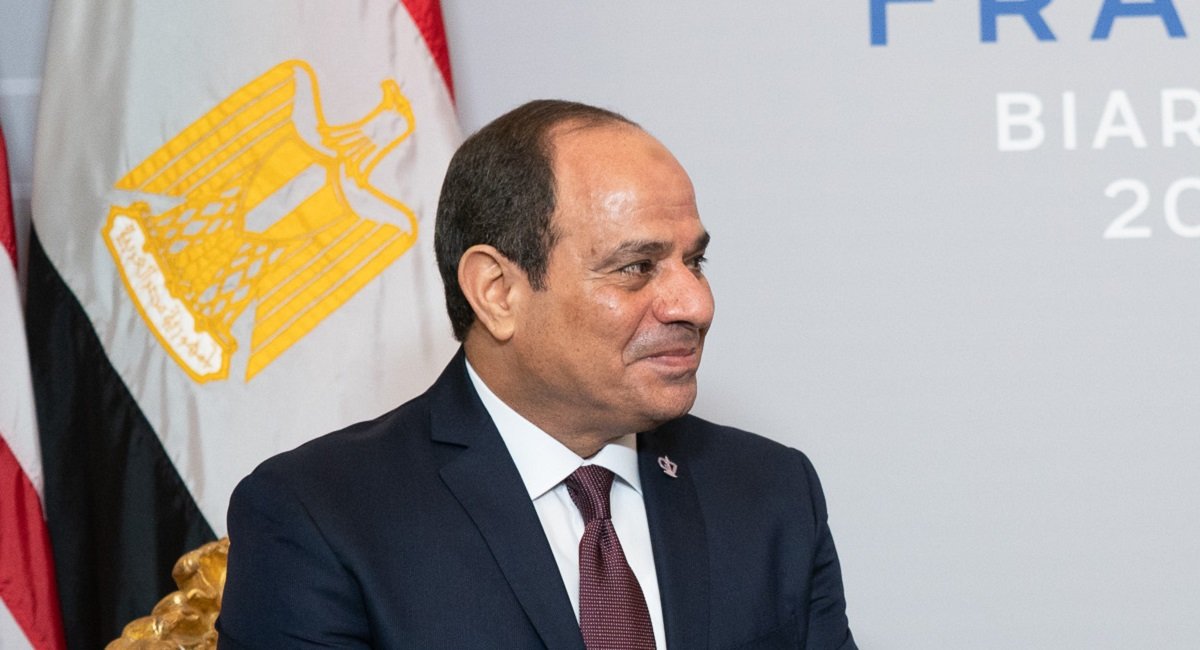

President Abdel Fattah al-Sisi has bent the Egyptian state and the armed forces to his investment strategy while professing a commitment to free market economics.
Military involvement in the Egyptian economy is giving rise to a new version of state capitalism. This approach may generate macro-level economic growth and improve the efficiency of public finances, but it also reinforces the grip of the state rather than consolidating free markets. The administration of President Abdel Fattah al-Sisi seeks private sector investment, but exclusively on its own terms.
These trends are demonstrated through the expansion and diversion of military economic activity in five sectors that serve the Sisi administration’s evolving version of state capitalism: real estate development, creation of industrial and transport hubs, rentier or extractive activities related to natural resources, relations with the private sector, and the effort to increase the state’s financial efficiency while seeking private investment to help capitalise the public sector. This has led to a “shell game” of financing state capitalism, where the military is central to the entire model, with consequences for Sisi’s effort to maintain a rentier political economy with insufficient rent.
New Model of State Capitalism
Sisi is using the military to reclaim the state’s centrality for setting parameters for decisionmaking by all economic actors and bending the private sector to its capital investment strategy. The net value of military ownership or control of economic assets and income is far smaller than many portray, though it is now considerably greater than a decade ago. The growth in discretionary funds controlled by the Ministry of Defense allows it to increase fringe benefits and cement loyalty among the rank and file, build a war chest to bankroll the development of military infrastructure and arms, make politically targeted media acquisitions, and stimulate donations to bodies such as Sisi’s pet Tahya Misr (Long Live Egypt) social welfare and development fund.
This does not mean that the elements of Sisi’s approach are bound together within an integrated strategy. Rather, they are all driven by his determination to secure capital, his conviction that bringing the concentrated power of the state to bear constitutes the most effective strategy for achieving this, and his use of the military as a spearhead. Egypt’s new state capitalism is locked onto a path of mainstreaming the military’s role in economic management and revenue generation, not due to any economic grasp or commercial acumen it may claim, but because it is both the most politically dependable and powerful coercive agency of the state.
Lacking sufficient oil- and gas-based wealth to sustain a rentier economy, Egypt’s state capitalism reinvents parasitic capital extraction from the larger economy. Because the state’s tax revenues are declining, the extractive mode drives the need for yet more extraction. This downward spiral is slowed only by constant infusion of capital assistance from foreign partners and by Sisi’s efforts to streamline extraction from both the public and private domestic business sectors. Sisi relies increasingly on the military to spearhead this extraction. His approach may help generate macro-level economic growth and improve the efficiency of public finances in the short term, but its principal outcome is to reinforce and perpetuate the grip of the Egyptian state and at the same time deepen Egypt’s shortage of capital.
Shell Game
Under Sisi, the military is emerging as his full partner in remodeling the rentier state, reshaping its political, bureaucratic, and economic management. Important policy shifts and massive public investment since Sisi came to power have contributed to macroeconomic stabilization. But instead of seizing the opportunity to implement deeper reforms that favor openness in markets and in politics, the Sisi administration has raised the stakes by investing even more deeply in state capitalism. Foreign donors and international financial institutions are enabling Sisi to avoid tackling the fundamental contradictions undermining his efforts to revise and streamline Egypt’s rentier state.
Egyptian Armed Forces officers, whether in service and retired, both spearhead Sisi’s energetic drive to extend the state’s reach into all spheres and ride on its coattails. No central or local government initiative to reclaim land, expand agriculture, build new cities, or extend associated infrastructure now takes place without some measure of formal consultation with military agencies. Many of the governors and senior ministry- or provincial-level officials involved in approving projects, awarding contracts, and issuing permits are also Egyptian Armed Forces retirees. Military approval has also become mandatory since 2014 in other areas, such as the extraction of mineral wealth from quarries and mines anywhere in the country.
At least as significant is the military’s role in the attempt to revive and reconfigure an import substituting industrial strategy. This is most graphically reflected, in the first instance, in a governmental requirement issued in June 2020 that all state bodies seeking to import goods or services from abroad must obtain approval from the National Authority for Industrial Development or the Ministry of Military Production. In the second instance, military agencies are investing major efforts in the revival or construction of state-owned factories, most prominently in the textile sector, which is estimated to account for 17 percent of GDP and to employ 1.2 million (this is besides military-owned factories in the cement, steel, and fertilizer sectors, where they have acquired shares of up to one-quarter of national production capacity).
There is some potential for Egypt to move gradually, fitfully, and even inadvertently towards a situation in which maintaining a state-controlled economy becomes untenable. But for now, nothing that Sisi has done alters what the 2019 International Monetary Fund report on Egypt described as “long-standing problems of weak governance, rent seeking, vulnerabilities to corruption, and the heavy presence of the state in the economy.” Without a fundamental break in the structuring of economic access and opportunity in Egypt, Sisi and any successors in the presidency will remain perpetually vulnerable to the contradictions of his rentier state and to the competitive rent seeking of the very state agencies his power depends on.



